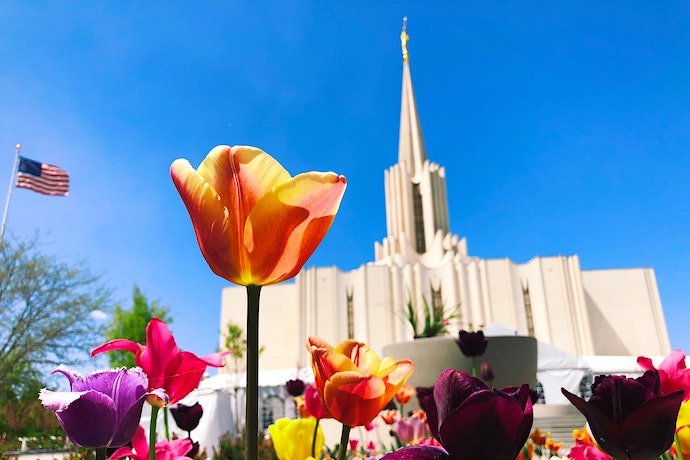Last week, the LDS Church formally came out in support of the federal Respect for Marriage Act (RFMA), a legislative initiative that would repeal the notorious Bill Clinton-era Defense of Marriage Act (DOMA) and compel all American states to honor legal interracial and same-sex marriages—although it would not require states to solemnize these marriages themselves.
Currently, the Supreme Court’s 1967 decision in Loving v. Virginia does require all states to certify interracial marriages, and its 2015 decision in Obergefell v. Hodges requires all states to certify same-sex marriages. In light of the illegitimately stacked, right-wing Roberts Court’s eagerness to shred civil rights precedents, however, Obergefell is certainly under threat, and even Loving may be.
This situation makes it urgent for Democrats to use their power in Congress to shore up the rights of women, queer people, and racial and ethnic minorities to the greatest extent possible. In the case of RFMA, 12 Republicans joined them in allowing the bill to proceed to a full floor vote, which it should easily pass. But neither mealy-mouthed Republican Senators, like Mitt Romney or Susan Collins, nor LDS Church leaders should be lauded as heroes for supporting this bare minimum legislation which is chock full of religious exemptions, some of them troubling.
I have no objection to the bill specifying that religious not-for-profits will not be legally required to furnish “any services, facilities, or goods for the solemnization or celebration of a marriage.” The only place where this right has ever even been in question is in the fevered imaginations of paranoid conservative Christians. But the exemptions go much further, including an amendment I would call a poison pill with respect to the future of advocacy for LGBTQ equality within religious colleges and universities by protecting the tax-exempt eligibility of these institutions as they continue to discriminate against LGBTQ individuals.
This provision, should it be included in the version of the bill that passes both the House and Senate, will essentially preempt the Religious Exemption Accountability Project’s attempts to attain redress for LGBTQ victims of discrimination at evangelical and Mormon colleges and universities via the court system—as well as any future attempts along these lines. As someone who’s been trying for years to get the public to care about queer students facing discrimination in Christian institutions of higher education as they organize and fight for their rights (to very little fanfare and often to dismissal or apathy at best), this provision bothers me deeply.
In any case, RFMA is very much not the Equality Act, a bill that would provide sweeping non-discrimination protections for queer Americans that has languished in Congress for years. It’s a defensive piece of legislation, a protection of the status quo rather than a step forward. If America were truly a functional democracy, we could do much better. But since America is not a functional democracy, RFMA is the best we can get right now. With that in mind, as Democrats work to pass RFMA, they should still complain that it doesn’t go far enough, rather than take a victory lap as if they’re pushing through a major progressive achievement.
By the same token, it’s irresponsible of the liberal punditocracy to heap praise on the religious institutions whose lobbies work to make sure more robust nondiscrimination protections remain out of reach. The Mormon Church, after all, isn’t changing its own harmful dogma and internal practices regarding homosexuality and the rest of the LGBTQ spectrum.
In fairness, the LDS leadership going even this far in terms of accommodating those outside the church and its understanding of morality, when the Catholic Bishops and the Southern Baptist Convention remain staunchly opposed, does represent a remarkable shift from the days of LDS support of California’s Proposition 8. That should be acknowledged. In so doing, however, there’s no need to, as it were, make “saints” out of “sinners” when the LDS Church, just like nearly all evangelical churches and the Catholic Church, continue to consider LGBTQ existence “intrinsically disordered” and to treat queer people as “less than.”





